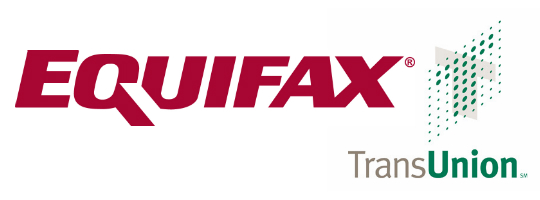If you want to purchase a house and need a mortgage, someone is going to have to pull a credit report at some point along the way. A credit report outlines credit history and ultimately, credit worthiness. Credit-reporting agencies are governed under The Consumer Reporting Act, and anyone who pulls a credit report needs to have authorization before doing so (which is why a mortgage broker will usually have you sign a consent form before accessing your credit bureau).
There are two major credit-reporting agencies in Ontario: Equifax Canada and Trans Union of Canada. While some lenders prefer one over the other, both provide similar information. All of the major credit-grantors particpate in the credit bureau system and on a quarterly basis all bank loan and credit card activities are updated. Of course items like collections, judgements, liens and bankruptcies are recorded on a regular basis (though, oddly enough, most mortgages are not included in credit bureau reports). Information remains on a person’s file for six years from the date of entry or last activity and the number of inquiries (the number of times a credit report was requested) will be reported for the most recent 3-year period. If you want, you can request to look at your credit report by contacting Equifax Canada or Trans Union of Canada directly.
While you don’t need to provide a SIN (Social Insurance Number) to have a credit report run, it is highly recommended, as it will ensure the file that is pulled is for the correct person (nothing worse than losing your dream home because credit report was for the wrong “John Smith”).
A credit report consists of several sections:
- Identification: name, birth date, current and previous addresses, etc
- Inquiries: a list of all the credit inquiries for the past 36 months
- Employment: a list of past and current employment
- Public Record: lists any collections, judgements, liens, bankruptcies, etc
- Trade: lists all debt (as reported to the credit bureau); includes credit cards, loans, etc
Of course, the most commonly-referred to section of a credit report is the “credit score.” With Equifax, the more widely accepted agency, the score is referred to as a Beacon Score, and has a range of 300-900. The higher the score, the more credit-worthy someone is. The score is based on numerous different criteria including job stability, number of inquiries, the number of and amount of outstanding credit items and the number of public records shown.
Generally speaking, the higher your credit score, the easier it will be to get a mortgage, and the better the rates and options you’ll receive. There are options for those with bruised credit (even as low as 500), but you’ll have very few of them, and will pay a higher interest rate. If your credit score is above 650-680, you should easily be able to get close to, if not, best rates. If you’re in the 700’s (very few people are in the 800’s), you’re pretty much good to go with best rates (at least as far as the credit score portion of your mortgage application goes).
If you have any general questions about credit score and how it affects your mortgage application, comment in the section below and I’d be glad to try and answer them for you (don’t share personal details or scores, though!).
